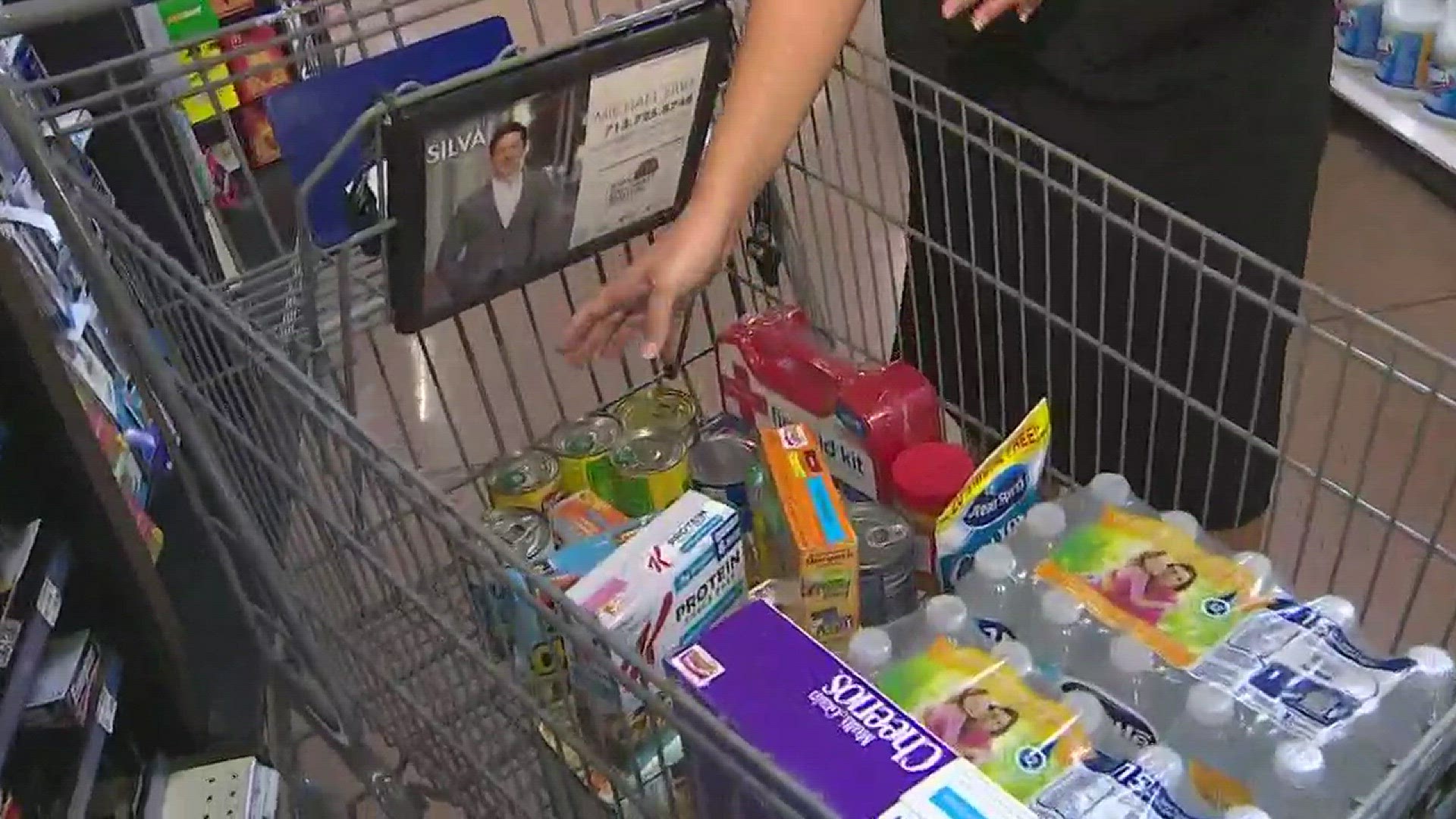The last big storm to hit the area was Hurricane Ike in 2008. And more than a million people have moved here since then. That means many people haven't been through a hurricane.
So here's what you should do:
First, make a plan and know where to go. Make a family emergency communication plan. Many communities have text or email alerting systems for emergency notifications.
If you are ordered to evacuate, know the local hurricane evacuation route(s) to take and have a plan for where you can stay.
If you are not in an area that is advised to evacuate and you decide to stay in your home, plan for adequate supplies in case you lose power and water for several days and you are not able to leave due to flooding or blocked roads.
Put together a go-bag and disaster supply kit.
The National Hurricane Center recommends that you build a basic emergency supply kit that could include the following recommended items:
- Water - one gallon of water per person per day for at least three days, for drinking and sanitation
- Food - at least a three-day supply of non-perishable food
- Battery-powered or hand crank radio and a NOAA Weather Radio with tone alert
- Flashlight
- First aid kit
- Extra batteries
- Whistle to signal for help
- Dust mask to help filter contaminated air and plastic sheeting and duct tape to shelter-in-place
- Moist towelettes, garbage bags and plastic ties for personal sanitation
- Wrench or pliers to turn off utilities
- Manual can opener for food
- Local maps
- Cell phone with chargers and a backup battery
Make sure your car is ready to go as well:
Get a full tank of gas as fuel may be in short supply after the storm. Make sure the windshield wipers are in good shape, and the tires (including your spare) are properly inflated.
Place your auto and home insurance documents, vehicle registration, title, and other important documents in a waterproof bag and keep them with you. Charge your cell phone and plan to bring it if you evacuate.
If you expect to leave your car behind, be sure it’s not in a flood-prone area. Rising water can seep in and damage your vehicle.
It's also smart to have an emergency kit in you car. Include items like jumper cables, flares or triangle reflectors, a first-aid kit, a blanket, and a flashlight with extra batteries.
HURRICANE CENTRAL: What you need to know to prepare for a storm

